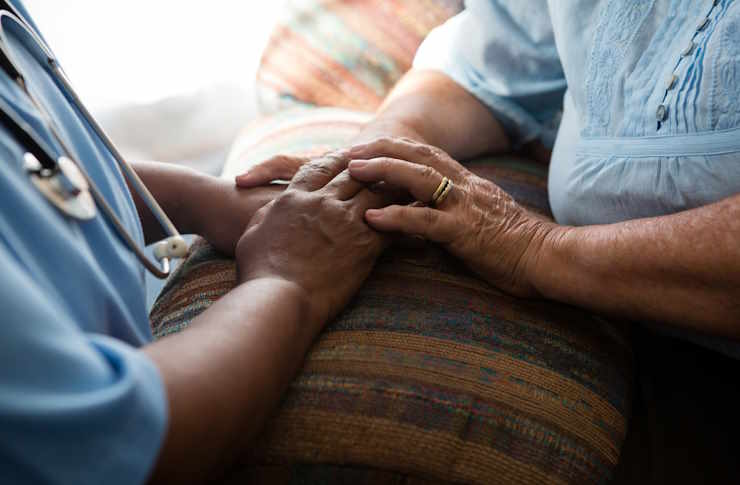How Seniors Can Access Medicare-Covered House Cleaning Services
As seniors age, maintaining a clean and safe home environment can become increasingly challenging. Fortunately, Medicare offers a range of benefits that can help alleviate some of these difficulties. One such benefit includes coverage for house cleaning services, ensuring seniors can live in a healthy and well-maintained home. This article will explore how seniors can access Medicare-covered house cleaning services, what these services entail, and how to navigate the eligibility and application processes.

What Medicare Covers for Home-Based Services
Medicare coverage for house cleaning services falls under specific circumstances and is typically linked to medically necessary home health services. Medicare Part A and Part B may cover home health aide services when prescribed by a physician as part of a comprehensive care plan. These services must be deemed medically necessary and provided by Medicare-certified home health agencies. However, Medicare does not cover routine housekeeping or custodial care that is purely for convenience or comfort. Coverage is limited to situations where cleaning services directly support medical care or safety requirements for homebound individuals receiving skilled nursing care or therapy services.
Eligibility Requirements for Medicare-Covered Services
To qualify for Medicare-covered house cleaning services, seniors must meet strict eligibility criteria. The individual must be homebound, meaning leaving home requires considerable effort and is typically for medical appointments or short, infrequent absences. A physician must certify that home health services are medically necessary and develop a written care plan. The services must be provided by a Medicare-certified home health agency, and the cleaning assistance must be incidental to skilled nursing care, physical therapy, or occupational therapy. Additionally, the services must be intermittent rather than full-time, and the primary reason for home health services cannot be housekeeping alone.
Types of Services Covered Under Medicare Guidelines
When Medicare covers home health services, the types of cleaning assistance included are limited and specific. Light housekeeping tasks may include changing bed linens, doing laundry essential for health and cleanliness, preparing simple meals, and maintaining a safe, sanitary living environment. Services might also encompass cleaning areas immediately surrounding the patient’s bed or treatment area, organizing medications, and ensuring pathways are clear to prevent falls. However, heavy cleaning tasks such as window washing, carpet cleaning, or general home maintenance are not covered. The cleaning services must directly relate to the patient’s health and safety needs rather than general household maintenance.
How to Apply for Services Through Medicare
The application process for Medicare-covered house cleaning services begins with consulting a physician who can assess medical necessity and prescribe home health services. The doctor must complete Medicare certification requirements and develop a comprehensive care plan that includes cleaning services as a component of medical care. Seniors or their families should contact Medicare-certified home health agencies in their local area to discuss available services and coverage options. The home health agency will coordinate with the physician to ensure all Medicare requirements are met and will handle the billing process directly with Medicare, reducing administrative burden on the patient and family.
Understanding Medicare Coverage in Rural and Urban Areas
Medicare coverage for home-based services can vary significantly between rural and urban areas across the United States. Rural seniors may face additional challenges accessing Medicare-certified home health agencies due to fewer available providers and longer travel distances for services. However, Medicare has implemented special provisions for rural areas, including increased reimbursement rates for providers and expanded telehealth services. Urban seniors typically have more provider options but may encounter longer waiting lists for services. Some states have implemented additional programs that complement Medicare coverage, particularly for seniors who need more comprehensive home support services than Medicare traditionally covers.
Costs and Coverage Limitations for Medicare Recipients
Medicare coverage for qualifying house cleaning services typically covers 80% of approved costs after the annual deductible is met, with recipients responsible for the remaining 20% coinsurance. For 2024, Medicare Part B deductible is $240 annually. Services must be provided by Medicare-certified agencies with established rates. Medigap insurance may cover some or all of the 20% coinsurance portion, depending on the specific plan. It’s important to understand that Medicare coverage is time-limited, typically lasting weeks rather than months, and is subject to periodic physician review and recertification.
| Service Type | Estimated Monthly Cost | Medicare Coverage | Out-of-Pocket Cost |
|---|---|---|---|
| Medicare-Certified Home Health | $2,000-$4,000 | 80% after deductible | $400-$800 |
| Private Housekeeping Services | $800-$2,400 | Not covered | $800-$2,400 |
| Medicaid Waiver Programs | $1,200-$3,000 | Varies by state | $0-$500 |
Prices, rates, or cost estimates mentioned in this article are based on the latest available information but may change over time. Independent research is advised before making financial decisions.
Understanding Medicare coverage for house cleaning services requires careful attention to eligibility requirements and coverage limitations. While Medicare does provide some household assistance as part of medically necessary home health services, coverage is restricted and temporary. Seniors should work closely with their healthcare providers to determine if they qualify for these services and explore additional resources through state Medicaid programs, Area Agencies on Aging, or private insurance options to supplement Medicare coverage. Proper planning and understanding of available resources can help seniors maintain safe, clean living environments while maximizing their healthcare benefits.
This article is for informational purposes only and should not be considered medical advice. Please consult a qualified healthcare professional for personalized guidance and treatment.




